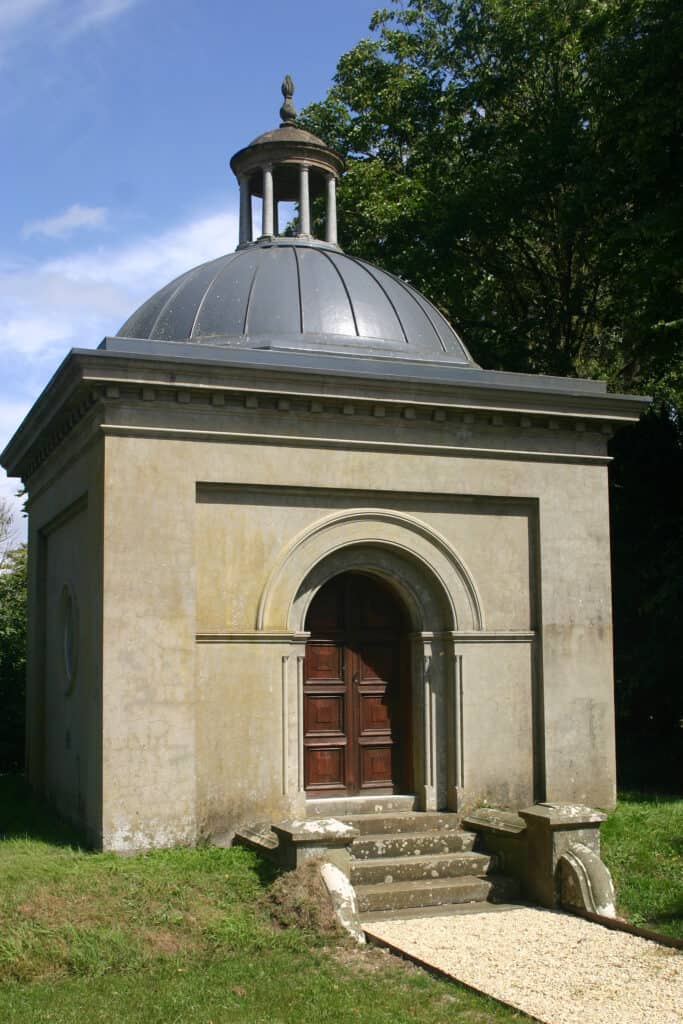Assistant herdsperson required to join the team at Grange Farm Pulham Dorset.
400 Autumn block calved
Please call James Yeatman on 07970 426186
or email [email protected]

Assistant herdsperson required to join the team at Grange Farm Pulham Dorset.
400 Autumn block calved
Please call James Yeatman on 07970 426186
or email [email protected]

After an extremely wet May, June finally settled down to a spell of some warm dry weather. We were able to finish silage making in good conditions and with all the grass silage clamps ending up being full.
Most of our arable crops look in a much better state than they did during april and may, which hopefully will lead to a good harvest. One of our crops that has struggled has been our forage maize which doesn’t like cold wet conditions. With some warm sunshine maize has an incredible ability to catch up on its growth stages .The saying is knee high by the 4th of July , may be this year for a shorter person !

I have been watching with interest the Jeremy Clarkson’s series about his first year in farming . It was refreshing to watch showing all the good and bad things that happen on a farm. We know that 2019 was a bad year to start with floods in the autunm ,a drought in the following spring and various other disasters on the way.Much of his practical advice came from a twenty one year old lad who had been born and bred into farming who able guide Jeremy through the reality of using various bits of farming equipment. Although the financial reward may not have been there, Jeremy did admit it had been one of his most enjoyable years of his life . I wonder if there will be a second series ? I think the series will have given viewers a great incite as to what farmers go through in a course of a year.
At home we have just completed our audit from our milk buyer cooperative Arla. A Vet spent nearly a whole day looking at all our cattle checking the wellbeing of them. Luckily the audit took place on a warm sunny day with the majority of the cattle out grazing enjoying the summer’s day.Also the Vet checked our record keeping of any health issues arising and any necessary treatments that were involved. Arla are also interested in the wider aspect of the farm. The general appearance is considered along with the wellbeing of our Staff and their welfare taking into consideration their housing and the general environment they work in. Also consideration is made into how we are looking after the environment and the wildlife within .Being a mixed farm we are able create a variety of wild life habitats such as beetle banks , wildbird areas and pollen and nectar strips in fields.Generally the Vet was complimentary to what we were doing . We have also put up cow brushes so that the cows can have a good scratch if they want to !

The main reason for doing all of this is that Arla can then say to its customers that the milk has been produced to a high standard with not only the cows wellbeing taken into accout but also the general running of the farm. This standard can be challenging at times !
By: James Cossins
Ready to share your local produce with the county?! If you are a Dorset-based farmer, grower, fisherman, or food or drink producer, this year’s Love Local Trust Local Food & Drink Awards are now open for entries!
What is Love Local Trust Local?
Love Local Trust Local was founded by fifth generation farming family, the Cossins’ in Tarrant Valley. Founder Barbara Cossins is passionate that farmers are represented. The label plans to educate the consumers on how to trust food labelling, where to look, what it all really means and why shopping local matters.
Created by farmers and producers, for farmers and producers, what sets these awards apart is that they are designed purely to celebrate the work that goes into our local food production!

The Awards
The second year of the Love Local Trust Local Food & Drinks Awards features 12 categories, with a total of 18 awards for the taking! From categories such as bakery, meat, fish and suchlike, through to conservation and sustainability, and innovation and diversification there is ample chance to get recognised.
Entrants must operate from their Dorset base, sourcing any ingredients from within a 30-mile radius. The team at Love Local want to find out what sets you apart, and why your practice truly stands out from the crowd. This is a chance for Dorset food and drink producers to really shout about what you do, why you do it and how you do it!
Get Involved
The Love Local Trust Local Awards are supported by sponsors who not only champion the awards and comprise the judging panel. This is one of the most unique ways to get involved with the local food and drink producing community, tasting some of the best food and drink Dorset has to offer. Get in touch to get involved!
To support the Love Local Trust Local Food and Drink Awards 2021, you can follow along on Facebook, Instagram and Twitter, for all the latest news and updates. You can also pop on over to the Rawston Farm Butchery & Shop to purchase your tea towel or car sticker to show your support for the cause.
To enter this year’s awards, click here. The team at Love Local look forward to learning more about the best of Dorset food and drink for 2021!
For a long time, for those of us who were lucky enough to go, the first experience of university was that heady moment when you turned from your mum driving away (as she was crying), pretended not to have a moment yourself, took a deep breath and walked back into the halls of residence.
After three years flew by managing the 3 S’s of university life (Socialising, Sport, and Study – apparently one can only do two of these properly at any time?!) you emerged blinking into the light of the ‘real world’ and got a job.
Of course, many people didn’t go this route, and that’s fine. However, there is an increasing need for higher technical skills for the modern workplace that have to be supported by higher level study. Whether that requires a trip away from home, or even a formal bachelor’s degree is far less certain.

For many, the simple fact of costs of leaving home are eye-watering and a barrier to progression. This is especially true if you (as I was) are from a family where nobody had been away to university before. The whole thing seems unattainable, and this feeds into lost opportunities and lost life chances for people.
Dorset looks idyllic, but several areas have incredibly low social mobility. Higher Education progression in the Dorset unitary authority area is 6% below national average (36% vs 42% for England, 2019) and this is amplified for those from low income families (17% vs 26% for England, 2019).
We are, quite simply, cutting off the pipeline for those young people – and the wider economy – if we don’t do more to support the development of higher learning here.
The Sutton Trust reports that the majority of young people in the UK stay local for Higher Education, so that participation rates reflect both social status and physical access to universities.
This new University Centre for Rural Dorset, and the Rural Business Hub, will serve this specific local opportunity gap. A purpose-built site, bringing into Dorset university level study at a far greater rate and with a wider range of partners.

Kingston Maurward College already offers foundation degrees, but we are now in discussions with a world-class Russell Group university as well as a suite of academics to increase the breadth of opportunity – from innovative sustainable land management, to archaeology, to heritage tourism, supporting skills and the industries in the rural county.
Alongside this will be a rural business support hub, allowing local businesses space to come together to exchange ideas, get business support, and if wished, offices within the building itself. This will allow the small businesses to accelerate their growth with support from the higher education offering, s well as having a space to work and meet clients.
The vision and strategic case is compelling, and I am hugely excited by the prospects for our rural young people; this is just the start.
Luke Rake
Principal
Kingston Maurward College
We are looking for an individual to help run our trendy food truck.
A passion for mexican food required!
Possibility to run your own unit in the future.
Contact us on: email [email protected]
or call us on: 07506 281 575

There’s nothing like a refreshing ice cream on a hot summer day (or at any time of the year for that matter). Across the Blackmore Vale there are innovative ways of making the most of local dairies to churn ice cream and create some of the tastiest products around. We naturally had to investigate further.

Several villages and towns across North Dorset have had a visit from Child Okeford based Arctic Cow with its distinctive bright blue truck. If you haven’t chosen your favourite flavours and watched the ice cream being freshly rolled by now, you’re in for a treat. Mother and daughter Marlene Ottewill and Nicola Baker run the business which has diversified during the pandemic. Nicola explained: “We used to go to all the festivals but with the lockdown all that stopped. It took us a while to think out of the box and then we got an invitation to operate from a farm shop and at Town Meadows in Gillingham. The word spread and now we have a rotation to villages and other attractions in North Dorset. It really gave families something different to do in the lockdown.”
The range of flavours is mind boggling and part of the fun is choosing and watching your ice cream being created. Nicola says there is no one standout flavour but they do a lot of strawberry, Nutella, and Oreo.
Milk vending machines have sprung up all over Dorset in the lockdown and sell a range of products. Ice cream is made on the farm at Madjeston Milk Station from their own dairy herd milk. You can buy a tub while being watched by one or two of the doe-eyed Ayrshire herd and if you can’t wait until you get home there are benches outside. With zero food miles and a range of flavours, there’s no excuse. I’d recommend the chocolate honeycomb or rum and raisin- well all of them actually.
Until I visited an ice cream parlour in Sherborne, I had no idea there was a difference between gelato and standard ice cream. Ecco Gelato Owner, Phillipa Tarling explained:“Gelato is churned slower than ice cream so it is denser and softer. It is made using more milk so has less fat content than ice cream. Gelato is served warmer than ice cream at -12c.”

The bright pastel coloured parlour instantly makes you feel as though you are on holiday and there’s a second one recently opened in Shaftesbury. All the gelato is made on the premises and they even do a product for dogs from rice milk. As expected, there’s a range of flavours to dip into from mango to Jaffa and sea buckthorn.
If you feel like a treat this summer, do check out the locally made ice cream and gelato in the Blackmore Vale. You will support local businesses and the dairy industry -and reduce your food miles.
Rachael Rowe
It has been reported that one in three of us will die without making a Will.
There are numerous beneficial reasons for making a Will which include making future provision for a spouse/partner, distribution of sole assets, appointment of guardians for minor children, ensuring inclusion of step children as beneficiaries, future care needs for a beloved pet(s), avoidance of potential family conflicts and appointment of suitable Executors

An appointment to make a Will or review an existing Will would include a discussion of personal circumstances together with some advice regarding Inheritance Tax planning, if necessary.
Preparing for the inevitable is important and having a Will and keeping it up to date is essential. Many leave it late and for some it’s too late and so distribution of their estate would be subject to the intestacy rules.
Most of us can look forward to increasing life expectancy, but unfortunately that could come with the loss of full mental capacity to manage your own affairs. A registered Lasting Power of Attorney enables you to rely upon trusted person(s) of your choice to make important financial, health and care decisions on your behalf, if and when, you need it in the future. This puts you in control.

An Attorney appointed by you under a Lasting Power of Attorney for Property and Financial Affairs can manage bank accounts, pay bills and sell a property for essential funding if required. Under a Health and Care Lasting Power of Attorney, the Attorney can attend meetings when key decisions are being taken to ensure your wishes regarding future care and even your wishes regarding life sustaining treatment are fully considered. The Attorney would always be entitled to receive relevant personal information and attend important meetings despite the much tightened General Data Protection Regulations (May 2018).
Please do not hesitate to contact me if I you would like a helpful discussion and advice about the process.
Lesley Hamilton
Porter Dodson LLP
It’s home to wheelbarrows and gardening tools today but this glorified garden shed in the grounds of Manston House also holds a unique place in British history.
Here on consecutive days in October 1882, the late Mrs Edith Hanham and her 89-year-old mother-in-law Lady Eliza Hanham became the first two people in modern Britain to be legally cremated.
The cremations were hugely influential but also controversial, causing an outcry in many quarters.
Some Manston villagers complained of ‘very disagreeable odours’ that were ‘palpable enough to all who happened to be in the way of the wind’.

Others claimed cremation was ‘distasteful’ or that it ‘interfered with the resurrection of the body’.
Describing himself as the ‘husband of Lady Hanham’s favourite grandchild’, Duncan Skrine, of Reading, publicly condemned the cremations a ‘revolting proceeding’.
He claimed the Hanham grandchildren were ‘unutterably shocked at the deed and the heartless publicity given to it’.
‘We are certain that Lady Hanham, the widow of a clergyman, thoroughly English in her sentiments, never could have contemplated, nor would have sanctioned, such a disposition of her remains,’ wrote Skrine.
Historically, cremation was practised by many ancient civilisations, including the Romans and the Saxons, but after the Anglo-Saxon era, it died out in this country.
The flame of interest was rekindled in the 19th century and fanned by the immense pressure on cemetery space resulting from rapid population growth.
In some cemeteries in Victorian London, bodies were being buried up to 14 deep.
When the Cremation Society was launched in 1874, its high-profile members included the novelist Anthony Trollope, the painter John Millais and Alice in Wonderland illustrator John Tenniel.
The society build its own crematorium at Woking and in 1879 cremated a horse.
Although no-one could find anything illegal in this, the Home Secretary gave into public pressure and banned human cremations.
But for the interest of Manston House owner Captain Thomas Hanham, the campaign may have ended there.
Prompted by the periodic flooding of Manston church and his family vault when the River Stour burst its banks, Hanham and his third wife Edith made a mutual pledge to have their remains cremated.
After Edith and Lady Eliza died in 1876 and 1877 respectively, Captain Hanham stored their bodies in a mausoleum until cremation became legal.
There wooden coffins were placed inside lead coffins to comply with sanitation laws.
The mausoleum also survives in the Manston House grounds.
Cremation campaigner William Robinson, who attended both ceremonies in October 1882, reported: ‘The cremations were carried out in a simple and inexpensive furnace, not only without any nuisance to the neighbourhood but without the slightest unpleasantness to those who stood within 2 feet of the white flame, which promptly resolved the bodies to their harmless elements.
‘The coffins, lead and all, were placed in the furnace on fire-brick and iron plates, which allowed the flames to rise freely up but prevented the ashes from falling to the furnace below.’
Sturminster Newton’s Medical Officer of Health, Dr Comyns Leach, was also present at the cremations and raised no objection.
When Thomas Hanham himself died just over a year later aged 58, he too was cremated.

This ceremony also made history as the first entirely Masonic funeral in England for 100 years.
Dorset diarist Julietta Forrester, who was among the mourners, records that the Rector of Manston absented himself, ‘he not agreeing with the late Captain’s views nor with this style of funeral’.
Julietta was of the same mind, describing it as a ‘shockingly anti-Christian ceremony’.
The Manston cremations effectively gave the practice a toehold in England and directly influenced later developments.
Several cremations followed at Woking and over the next 20 years the Cremation Society opened crematoria in Manchester, Glasgow, Liverpool, Darlington and London.
By 1904 more than 4,400 people had been cremated.
And it all started in what was to become a garden shed in Manston.
• A chapter on the Manston crematorium appears in Roger Guttridge’s book Dorset: Curious and Surprising.
Contact: [email protected]
By: Roger Guttridge
A 1930s woodcut by Shaftesbury’s High House Press features the L-shaped thatched cottages that formerly occupied the end of Laundry Lane.
The cottages probably stood on the same site as the ancient Laundry House, referred to by the Rev John Hutchins in his 18th century History of Dorset.

Hutchins explained that Laundry or ‘Lander’ Lane ran from Shaftesbury Abbey in what is now Park Walk down to St James’s parish and that there was a well called Laundry Well in a garden at the bottom.
Even in Hutchins’ time, Laundry House was ‘pulled down but the well is still in use’.
Hutchins believed that nuns from the Abbey carried their linen down the footpath to wash it in the well.
Most of the old Laundry Lane is now known as Stoney Path but its route has not changed since the nuns trod it daily 1,300 years ago.
The thatched cottages in the woodcut were destroyed by fire during the Second World War.
Tradition has it that a woman jumped from an upstairs window and was caught in a blanket by people from a nearby pub.
The cottages were replaced in 1953 by a house called Stonehaven, which had its own unusual links with the war.

It was built using not only stone from its fire-ravaged predecessor but plywood bomb cases to line the roof and tiles ‘robbed’ from Tyneham, the abandoned Dorset village that was famously requisitioned by the government during the war and never given back.
In 2018 the then owners of Stonehaven told me they believed the site of the old Nuns’ or Laundry Well was in the corner of their garden.
By: Roger Guttridge